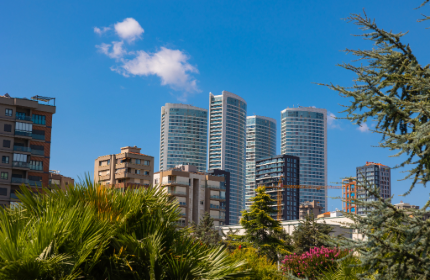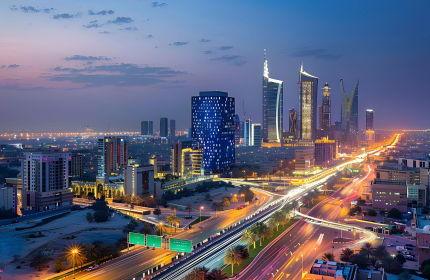A Comprehensive Guide to Buying Properties in Saudi Arabia
A Comprehensive Guide to Buying Properties in Saudi Arabia
Understanding the Real Estate Market in Saudi Arabia
The real estate market in Saudi Arabia has been experiencing significant growth in recent years. With the government’s efforts to diversify the economy and attract foreign investment, the demand for properties has been on the rise. According to a report by JLL, the real estate consultancy firm, the residential sector in Saudi Arabia witnessed a 7% increase in sales during the first quarter of 2021 compared to the same period in the previous year.

Buy/sell, rent/lease residential &
commercials real estate properties.
One of the key factors driving the growth in the real estate market is the increasing population in Saudi Arabia. The country’s population is expected to reach 39 million by 2030, creating a strong demand for housing. Additionally, the government’s initiatives, such as the Vision 2030 plan, which aims to transform the economy and reduce its dependence on oil, have attracted foreign investors and boosted the real estate sector.
Another important aspect to consider when understanding the real estate market in Saudi Arabia is the regional variations. The market dynamics can vary significantly between cities, with Riyadh and Jeddah being the most active markets. For example, Riyadh has seen a surge in demand for affordable housing due to the increasing number of young professionals and expatriates moving to the city for work opportunities.
Legal Considerations for Property Buyers in Saudi Arabia
Before purchasing a property in Saudi Arabia, it is crucial to understand the legal considerations involved. Non-Saudi nationals are allowed to own properties in certain areas designated as “freehold” zones, such as the Economic Cities and some parts of the Red Sea coast. However, in other areas, foreigners can only lease properties for a maximum period of 99 years.
It is also important to note that the real estate market in Saudi Arabia is regulated by the Ministry of Housing. The ministry has implemented various regulations to protect the rights of buyers and sellers. For instance, it is mandatory for developers to obtain a license from the ministry before selling off-plan properties. This ensures that the project meets certain quality standards and provides buyers with legal protection.
Additionally, it is advisable to hire a reputable real estate lawyer who is familiar with the local laws and regulations. They can guide you through the legal process, review contracts, and ensure that all necessary documentation is in order. This will help avoid any potential legal issues and provide peace of mind throughout the property buying process.
Financing Options for Buying Properties in Saudi Arabia
When it comes to financing options for buying properties in Saudi Arabia, there are several avenues available to both Saudi nationals and non-Saudi residents. The most common method is through mortgage loans provided by local banks. These loans typically require a down payment of 20-30% of the property’s value and have a maximum repayment period of 25 years.
In recent years, the government has also introduced initiatives to support homebuyers. For example, the Saudi Real Estate Refinance Company (SRC) was established to provide long-term funding to banks, enabling them to offer more affordable mortgage rates to buyers. This has made homeownership more accessible to a wider range of individuals.
Another financing option is through Islamic financing, which is compliant with Shariah law. Islamic banks in Saudi Arabia offer home financing solutions that are based on the principles of profit-sharing and risk-sharing. This provides an alternative for buyers who prefer to adhere to Islamic principles in their financial transactions.
Step-by-Step Guide to Purchasing a Property in Saudi Arabia
Purchasing a property in Saudi Arabia involves several steps that buyers need to be aware of. The first step is to identify the property you wish to purchase and conduct thorough research on its market value, location, and potential for growth. This will help you make an informed decision and negotiate the best price.
Once you have selected a property, the next step is to submit an offer to the seller. If the offer is accepted, a sales agreement is drafted, which outlines the terms and conditions of the purchase. It is essential to have a real estate lawyer review the agreement to ensure that your interests are protected.
After signing the sales agreement, the buyer is required to pay a deposit, usually around 10% of the property’s value. This deposit is held in escrow until the completion of the transaction. During this period, it is important to conduct a thorough inspection of the property to identify any potential issues or defects.
Once the inspection is complete and both parties are satisfied, the final payment is made, and the property ownership is transferred to the buyer. It is advisable to register the property with the relevant authorities to ensure legal ownership and protect your investment.
In conclusion, buying properties in Saudi Arabia requires a comprehensive understanding of the real estate market, legal considerations, financing options, and the step-by-step process involved. By conducting thorough research, seeking professional advice, and being aware of the regulations, buyers can navigate the market with confidence and make informed decisions. With the government’s focus on diversifying the economy and attracting foreign investment, the real estate sector in Saudi Arabia presents lucrative opportunities for both local and international buyers.




